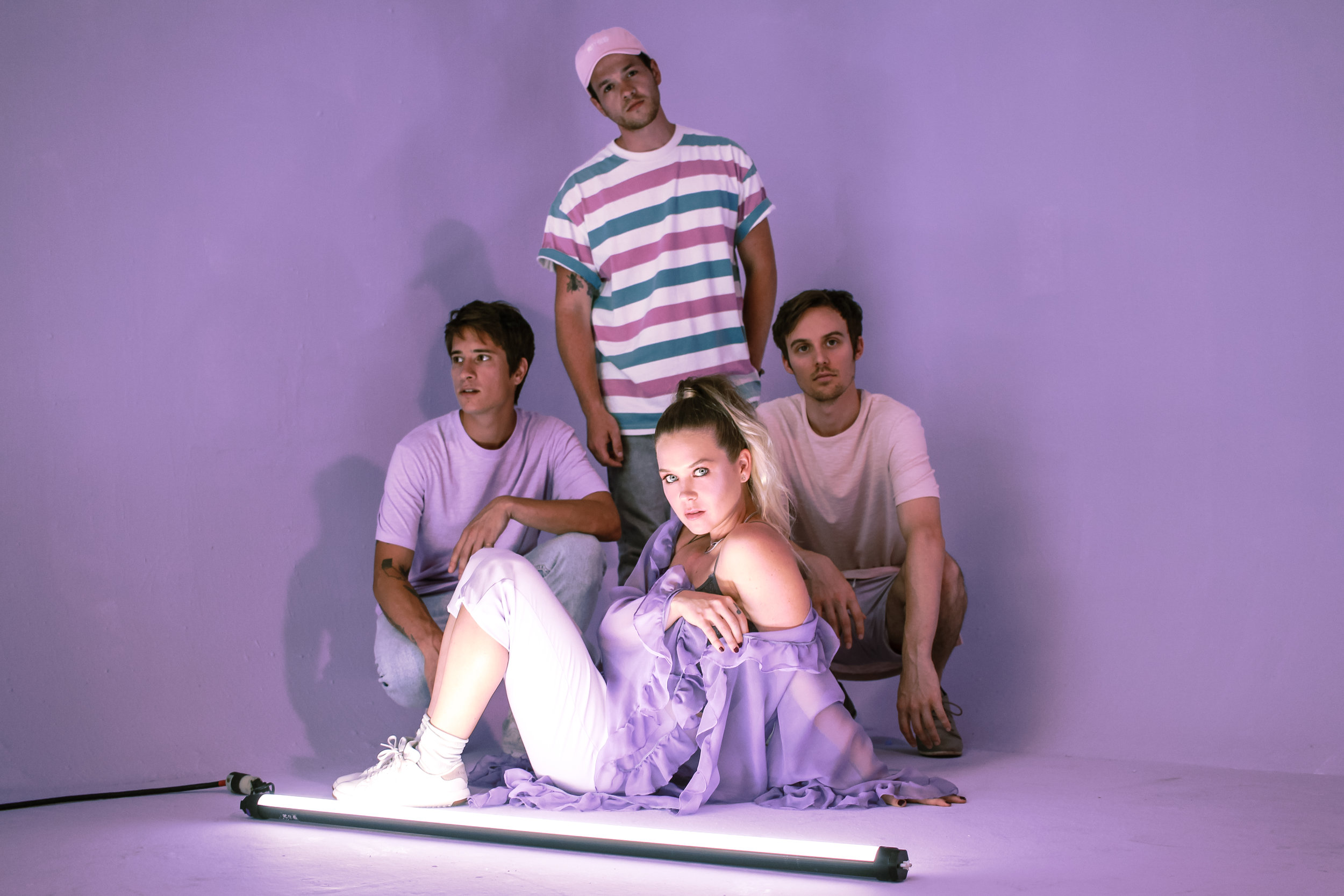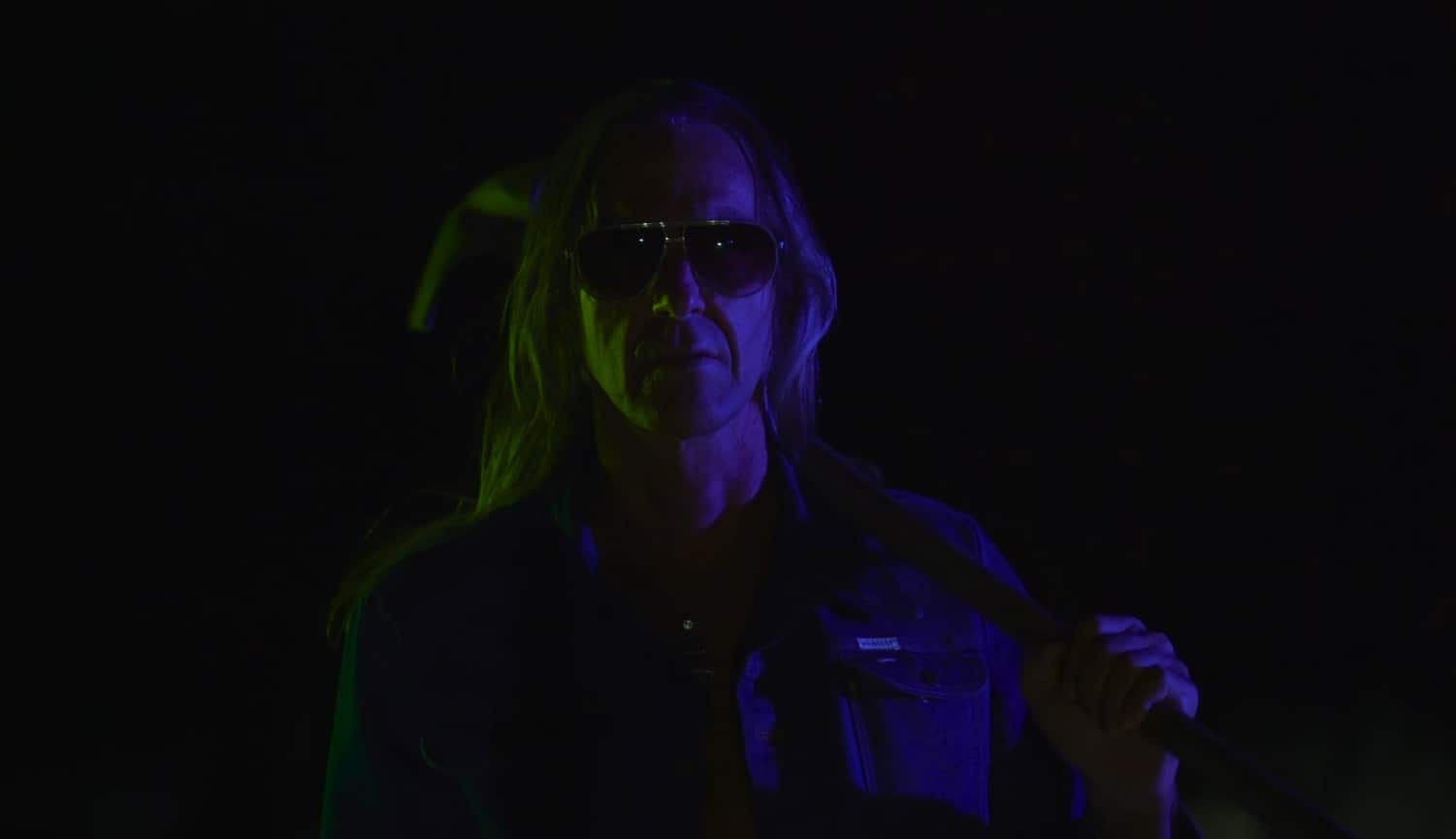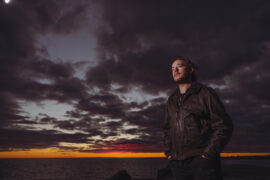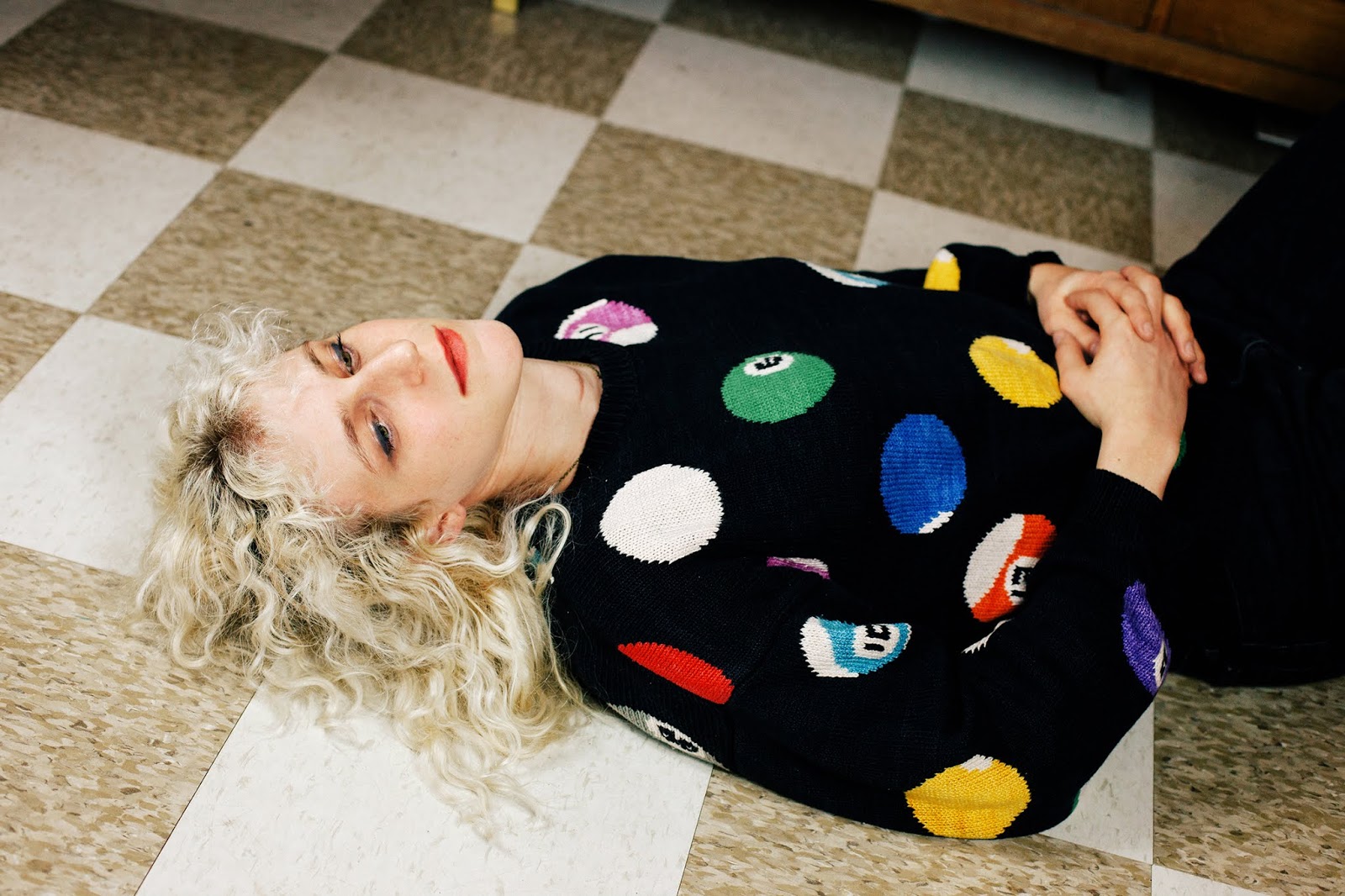English indie pop duo IDER showcase vulnerable and sassy lyrics on their third album, ‘Late to the World,’ dissecting what it means to be a late bloomer and more in a candid conversation with Atwood Magazine.
Stream: ‘Late to the World’ – IDER
Some people seem to have life all figured out by the age of 25.
They’ve dumped their college futons in favor of a West Elm sectional, can parallel park without breaking a sweat, and confidently know the difference between a Cabernet Sauvignon and a Merlot when perusing the wine aisle before a dinner party.
Then there’s the rest of us, stumbling through adulthood but figuring it out as we go. For those of us who fit into this category, indie pop duo IDER’s new album Late to the World (released February 2025 via Nettwerk Music Group) is sure to be your new favorite album, delivering a lyrical embrace of what it means to be “late” – not in a way that feels like a setback, but more as a statement of self-discovery.
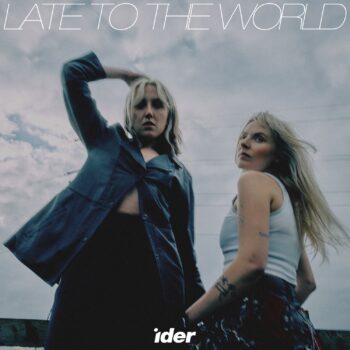
Throughout Late to the World, IDER – comprised of Megan Markwick and Lily Somerville – balance tracks that feel introspective without ever feeling self-serious, hilarious without losing their depth.
In their words, “We write from personal spaces with each other. At the heart of what we do – we’re such lyrics, girls. The big themes on the album have to do with the idea of feeling like a late bloomer and feeling like you’re somehow being left behind, or you’re not catching up with these kind of social landmarks that other people seem to be achieving. This is us figuring life out and figuring out how to make sense of things.”
From song to song, Late to the World brings an interesting and eclectic mix of sounds and feelings – but it thrives in the mid-tempo pop sounds of singles like “Attachment Theory” and “You Don’t Know How to Drive.”
As IDER share, “That was really cool to see people really react to ‘You Don’t Know how to Drive.’ It doesn’t necessarily need to be this kind of big, kind of serious experience that people connect to. People connect to the sass.”
You don’t know how to drive
You’re always missing the signs
But you have no problem
telling me how to live
from the passenger side
You say you figured it out
When you were high in Berlin
I reckon you go to therapy
just to learn to win the fights you’re in
Oh to be honest I didn’t hear a word you said
I’m too busy thinking of fantasies in my head
– “You Don’t Know How to Drive,” IDER

Now, with Late to the World out in the wild and a tour underway, the band is ready to bring their new music to stages all across Europe and the United States. “I think it’s just like an opportunity to kind of be in a room together and screen together and celebrate. And, yeah, let it all out. Let all of our different sides out”, they say. And honestly? That sounds like exactly what the world needs right now.
Read on for our full conversation with IDER below, and catch the band on their North American tour this April – find tickets and more information here!
— —
:: stream/purchase Late to the World here ::
:: connect with IDER here ::
— —
A CONVERSATION WITH IDER

Atwood Magazine: First of all congratulations to you both on your new album, Late to the World! What has the response been? What have you been hearing from fans?
IDER: The response has been great. It was very exciting to get it out in the world. It felt like a long time coming. We’ve had so many lovely, very connecting messages from fans. That’s what connects us and makes it make sense. It’s been a really good reception. I’m very excited to be taking it on tour, which starts next week.
Have any of the fans’ reactions particularly surprised you?
IDER: Oh, that’s good question. I think there’s been quite a lot of conversation around a particular track called ‘Killing the game’, which has been really lovely to see. That song is about feeling like you’re not killing the game and everyone else is. So I think people kind of naturally connect to that, because what we have learned is that it’s all perception, isn’t it? You might appear like you’re really smashing it, and then, you know, actually, you’re feeling really kind of insecure, or you have imposter syndrome.
And that’s been quite a funny one, because we put this record out, and it’s so exciting. There’s been so much great response and great press, and just like, we’re selling out shows, and then we have this song about feeling like we’re not killing the game, which is also, you know, we hold multitudes. You can feel both of those things at the same time. So a lot of people require being like, but wait, you guys look like you’re really killing the game – I think it’s quite nice, because then it just shows that it’s all a bit of a farce at the end of the day.
It is also really cool to see people really react to “You Don’t Know How to Drive.” Like, it doesn’t necessarily need to be this kind of big, serious experience that people connect to. People can connect to the sass.
That's one of my favorite tracks. I really love the lyric, “I reckon you go to therapy just to learn to win the fights you’re in” – I feel like we all know a man’s name we can associate with that line. I’d love to hear more about your writing style, and what inspired some of those sassier lyrics.
IDER: On that song in particular, we’re talking about the archetype of a millennial soft boy, and just the kind of, the kind of ways that, you know, soft boy behavior plays out. It’s funny. Someone mentioned that line the other day as well. We were throwing around lyrics and talking about – what was the archetype of that kind of person? What are they getting up to? What are they doing? And it was, it was such a laugh writing that song.
There’s an Instagram account called ‘Beam Me Up Soft Boy.’ We love it, like it cracks us up so much we were inspired by that. It just felt like we had so much meat to chew on with that song. So I think that’s where, you know, the lyrics just really poured out. I guess that’s what people are really connecting to.
That's funny. I'm gonna have to find this Instagram account. I noticed that there's a theme of almost weaponizing therapy, and using therapy language that shows up throughout the lyrics on this album. How did that become a through-line?
IDER: I don’t think that we were intentionally trying to bring in the therapy chat so much – but we write from personal spaces with each other. And a lot of the lyrics are like at the heart of what we do we’re such lyrics, girls, we love it. The big themes on the album have to do with the idea of feeling like a late bloomer and feeling like you’re somehow being left behind, or you’re not catching up with these kind of social landmarks that other people seem to be achieving, or your peers seem to be achieving. I guess where the therapy language comes into that it’s like, this is us figuring life out and figuring out how, like, how to make sense of things.
I think, like, it’s a really interesting point you make, actually, there is an added layer there of when therapy language is kind of weaponized a bit. And I do think that there’s like, in some ways, like it’s become such a big part of, like the conversation, like therapy and talking therapy, and that is incredible. And that’s like a really interesting kind of shift, I think, in our generation.
You can argue that is coming up in “Attachment Theory.” It’s like everyone’s become obsessed with diagnosing themselves and attachment styles. But is it helpful? I don’t know. That’s the heart of that song. Feeling like I don’t really want to love this way. But am I this person? Do I love that way? Like, is that how I’m defined now for the rest of my life?

There’s a lot of reflective moments on the album – do either of you feel like any one lyric or song stands out as the thesis of Late to the World?
IDER: The tagline of the album is, “I might be late to the world, but I’m okay,” because that’s this idea of being a late bloomer, and the songs throughout the album are unpacking that and asking, what does it mean to be a late bloomer? Maybe it’s that you feel things more deeply, or you move through life more slowly and with more intention. Seeing and feeling everything, which makes it take a bit longer and then that kind of the headline being that I guess it doesn’t matter then, if you’re late to the world.
That just reminded me of one of the lyrics in killing the game, which I think ties into very much so like into late to the world. That song and the idea of feeling like a late bloomer, but you know, everyone else is feeling something similar,
The lyric is, “this party is dead, but I’m dying too” – there’s a tone to it where it’s deep and it’s, got this heart to it and emotion attached to it, but it’s also got a layer of irony, or like a knowingness, or the slight humor. I guess the metaphor of it is that, like, life is the party, right? And we’re at this party, and it’s dead, or you’re not feeling it at the moment, but like, you’re dying as well. It’s got that kind of brutal edge to it, which I think in our lyrics, we always kind of, like, we like to toe that line between, like deep and heartfelt and emotional, while also being self aware.
Now, taking a step back from maybe even this release, and just talking a little bit more about your music in general, I feel like pop music and kind of this, like indie pop sound. It's having a really big moment right now, and I'm curious where you both feel like you fit into the bigger picture of pop music today?
IDER: Oh, well, the thing I would say to that is that we’ve always crossed a lot of genres in our music. We’ve always been influenced and inspired by a ton of different artists and different genres, and we’ve never consciously or like intended to kind of like pigeon hole ourselves too much. That’s actually what I think connects our fans to our music a lot of the time
I guess it’s still what we’re doing is pop music, but we’ve always felt like we’ve done our own thing, and then when people get it, they really get it. But yeah, you’re right. Pop music, and female pop is having a huge comeback, and it’s so amazing to see. We’re super inspired by that.
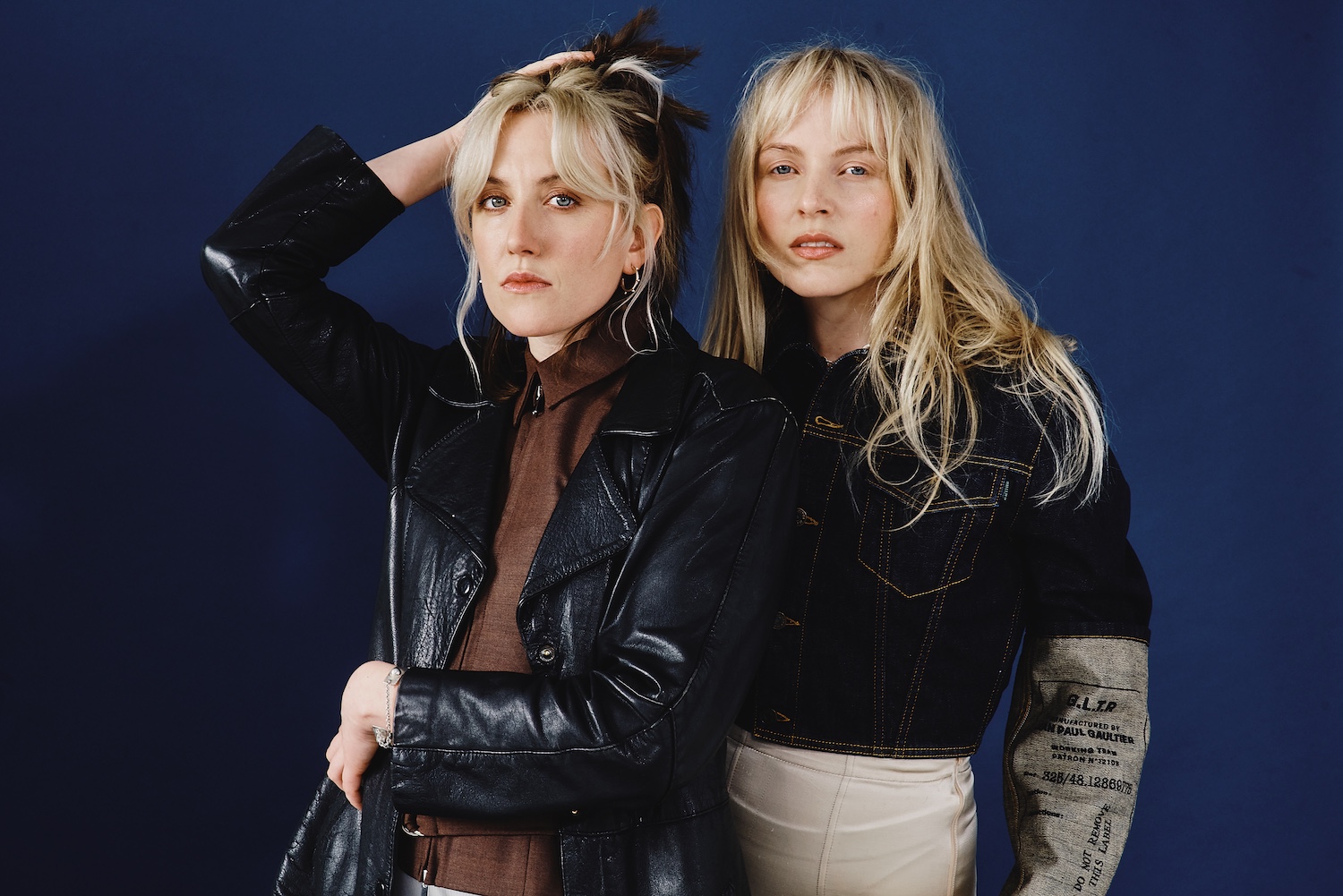
I know you are taking the album on the road and headlining some upcoming shows. Can you tell us a little bit about what we can expect from you both on your upcoming tour?
IDER: Yeah, we are very excited to be on tour. I mean, it’s a huge show. It sounds big. There’s some, super intimate moments, and then some huge, kind of call to arms, celebratory, belty moments that feel really powerful. And yeah, I think it’s just like an opportunity to kind of be in a room together and scream together and celebrate. And, yeah, let it all out. Let all of our different sides out. That’s it.
I know you’re coming to my hometown of L.A and headlining the Echoplex, are there any other spots you are really excited to play?
IDER: We’re so excited, generally, to be back in North America. Oh my goodness. Like, it’s been a long time since we were over there, and it just feels like a dream come true to be back. We have a lot of fans from the U.S that we connect with online, so it’s going to be so awesome to see them and, like, connect with them in person. We’re really looking forward to some of the East Coast shows. We’re excited for Chicago, we’re doing two nights in New York, which is very exciting. And yeah, the Echo in LA is gonna be awesome.
— —
:: stream/purchase Late to the World here ::
:: connect with IDER here ::
— —
— — — —

Connect to IDER on
Facebook, 𝕏, TikTok, Instagram
Discover new music on Atwood Magazine
© Sami Weller
:: Stream IDER ::


 © Sami Weller
© Sami Weller